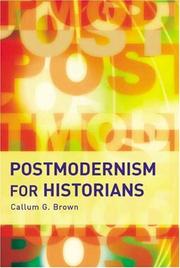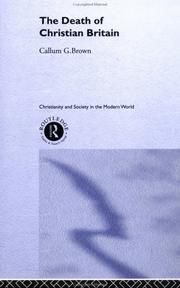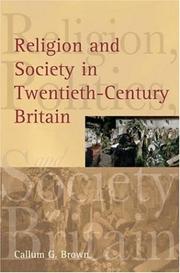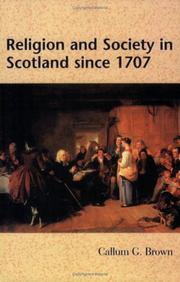| Listing 1 - 10 of 19 | << page >> |
Sort by
|

ISBN: 0582506042 9780582506046 Year: 2005 Publisher: Harlow: Pearson Longman,
Abstract | Keywords | Export | Availability | Bookmark
 Loading...
Loading...Choose an application
- Reference Manager
- EndNote
- RefWorks (Direct export to RefWorks)
History as a science --- History --- Postmodernism --- Philosophy --- Methodology --- Post-modernism --- Postmodernism (Philosophy) --- Arts, Modern --- Avant-garde (Aesthetics) --- Modernism (Art) --- Philosophy, Modern --- Post-postmodernism --- History, Modern --- Historiography --- History - Philosophy --- History - Methodology
Book
ISBN: 9781474224499 1474224490 9781474224529 1474224520 9781474224543 9781474224550 Year: 2017 Publisher: London ; New York, NY : Bloomsbury Academic, an imprint of Bloomsbury Publishing, Plc,
Abstract | Keywords | Export | Availability | Bookmark
 Loading...
Loading...Choose an application
- Reference Manager
- EndNote
- RefWorks (Direct export to RefWorks)
The Western World is becoming atheist. In the space of three generations churchgoing and religious belief have become alien to millions. We are in the midst of one of humankind's great cultural changes. How has this happened? Becoming Atheist explores how people of the sixties' generation have come to live their lives as if there is no God. It tells the life narratives of those from Britain, Western Europe, the United States and Canada who came from Christian, Jewish and other backgrounds to be without faith. Based on interviews with 85 people born in 18 countries, Callum Brown shows how gender, ethnicity and childhood shape how individuals lose religion. This book moves from statistical and broad cultural analysis to use frank, humorous and sometimes harrowing personal testimony. "Becoming Atheist" exposes people's role in renegotiating their own identities, and fashioning a secular and humanist culture for the Western world.
Secularism --- Atheism --- Secularization (Theology) --- Secular theology --- Death of God theology --- Theology, Doctrinal --- Philosophy --- Agnosticism --- Free thought --- Irreligion --- Religion --- Theism --- Ethics --- Utilitarianism --- Postsecularism --- History --- Sécularisation --- Athéisme --- Sécularisation (Théologie) --- Histoire --- 316:2 --- 316:2 Godsdienstsociologie --- Godsdienstsociologie --- Sécularisation --- Athéisme --- Sécularisation (Théologie)

ISBN: 0415181496 0415241847 Year: 2000 Publisher: London ; New York : Routledge,
Abstract | Keywords | Export | Availability | Bookmark
 Loading...
Loading...Choose an application
- Reference Manager
- EndNote
- RefWorks (Direct export to RefWorks)
Secularism --- Sécularisation --- History --- Histoire --- Great Britain --- Grande-Bretagne --- Church history --- Histoire religieuse --- Ethics --- Irreligion --- Utilitarianism --- Atheism --- Postsecularism --- Secularization (Theology)

ISBN: 058247289X 9780582472891 9781315837314 9781317873488 9781317873495 9781138147980 Year: 2006 Publisher: Harlow : Pearson Longman,
Abstract | Keywords | Export | Availability | Bookmark
 Loading...
Loading...Choose an application
- Reference Manager
- EndNote
- RefWorks (Direct export to RefWorks)
Christian sociology --- Christianity and politics --- History --- Christianity --- Church and politics --- Politics and Christianity --- Politics and the church --- Political science --- Christian social theory --- Social theory, Christian --- Sociology, Christian --- Sociology --- Political aspects --- Great Britain --- Church history

ISBN: 074869921X 0585102392 9780585102399 0748608869 9780748608867 0748608869 Year: 2007 Publisher: Edinburgh : Edinburgh University Press,
Abstract | Keywords | Export | Availability | Bookmark
 Loading...
Loading...Choose an application
- Reference Manager
- EndNote
- RefWorks (Direct export to RefWorks)
From current day sectarianism to the Free Church, religion has had a dominant effect upon society in Scotland for centuries. In this topical and thought-provoking book, Callum Brown examines the role of religion in the making of modern Scottish society. Tackling important contemporary themes such as the role of the Kirk in national identity and the growth of secularisation, he explains the history of Catholicism, Presbyterianism and Episcopalism over the last 250 years in an accessible and readable way.
Scotland --- Church history --- Social life and customs --- SOCIAL SCIENCE / Sociology of Religion.

ISBN: 1138169315 1317869877 1317869869 1315836106 1281347191 9786611347192 1405898631 9781317869863 9781405898638 9781281347190 0582506042 9780582506046 9781317869870 9781315836102 9781317869856 9781138169319 Year: 2013 Publisher: London ; New York : Routledge,
Abstract | Keywords | Export | Availability | Bookmark
 Loading...
Loading...Choose an application
- Reference Manager
- EndNote
- RefWorks (Direct export to RefWorks)
Postmodernism is an essential approach to History. This is the first dedicated primer on postmodernism for the historian. It offers a step-by-step guide to postmodern theory, includes a guide to how historians have applied the theory, and provides a review of why its critics are wrong. In simple and clear language, it takes the reader through the chain of theory that developed in the 20th century to become now, in the early 21st century, the leading stimulant of new forms of research in History.With separate chapters on The Sign, The Discourse, Post/Structuralism, The Text, T
History --- Postmodernism. --- Post-modernism --- Postmodernism (Philosophy) --- Arts, Modern --- Avant-garde (Aesthetics) --- Modernism (Art) --- Philosophy, Modern --- Post-postmodernism --- Historiography --- History, Modern --- Philosophy. --- Methodology. --- Philosophy
Book
ISBN: 9781843837923 9781782040682 Year: 2012 Publisher: Suffolk Boydell & Brewer
Abstract | Keywords | Export | Availability | Bookmark
 Loading...
Loading...Choose an application
- Reference Manager
- EndNote
- RefWorks (Direct export to RefWorks)
Feminism --- Secularism --- Secularization --- Women and religion --- 316:2 --- Religion and women --- Women in religion --- Religion --- Sexism in religion --- Appropriation and impropriation --- Impropriation --- Church and state --- Ethics --- Irreligion --- Utilitarianism --- Atheism --- Postsecularism --- Secularization (Theology) --- Emancipation of women --- Feminist movement --- Women --- Women's lib --- Women's liberation --- Women's liberation movement --- Women's movement --- Social movements --- Anti-feminism --- 316:2 Godsdienstsociologie --- Godsdienstsociologie --- Religious aspects --- History --- Law and legislation --- Emancipation
Book
ISBN: 1108367593 1108373100 1108421229 1108431615 Year: 2019 Publisher: Cambridge, England : Cambridge University Press,
Abstract | Keywords | Export | Availability | Bookmark
 Loading...
Loading...Choose an application
- Reference Manager
- EndNote
- RefWorks (Direct export to RefWorks)
Post-war British culture was initially dominated by religious-led sexual austerity and, from the sixties, by secular liberalism. Using five case studies of local licensing and a sixth on the BBC, conservative Christians are exposed here as the nation's censors, fighting effectively for purity on stage, screen and in public places. The Anglican-led Public Morality Council was astonishingly successful in restraining sex in London's media in the fifties, but a brazen sexualised culture thrived amongst the millions of tourists to Blackpool, whilst Glasgow and the Isle of Lewis were gripped by conservatism. But come the late 1960s, tourists took Blackpool's sexual liberalism home, whilst progressive Humanism burrowed into Parliament and the BBC to secularise moral reform and the national narrative. Using extensive archival research, Callum G. Brown adopts a secular gaze to show how conservative Christians lost the battle for the nation's moral culture.
Sex customs --- Sexual ethics --- Secularism --- Ethics --- Irreligion --- Utilitarianism --- Atheism --- Postsecularism --- Secularization (Theology) --- Sex --- Sex ethics --- Sexual behavior, Ethics of --- Customs, Sex --- Human beings --- Sexual behavior --- Sexual practices --- Manners and customs --- Moral conditions --- History --- Religious aspects. --- Moral and ethical aspects --- Church history.
Book
ISBN: 1283836580 1782040684 1843837927 Year: 2012 Volume: v. 29 Publisher: Woodbridge, [Eng.] : Boydell Press,
Abstract | Keywords | Export | Availability | Bookmark
 Loading...
Loading...Choose an application
- Reference Manager
- EndNote
- RefWorks (Direct export to RefWorks)
In the 1960s, two great social and cultural changes of the western world began. The first was the rapid decline of Christian religious practice and identity and the rise of the people of 'no religion'. The second was the transformation in women's lives that spawned a demographic revolution in sex, family and work. Both phenomena were sudden though not uniform in their impact. The argument of this book is that the two were intimately connected, triggered by an historic confluence of factors in the 1960s. Canada, Ireland, UK and USA represent different stages of secularisation for the book's study. The religious collapse in mainland Britain and most of Canada was sharp and spectacular but contrasted with the more resilient religious cultures of the United States, the Canadian Maritimes, Ireland and Northern Ireland. Using statistical evidence from government censuses, the book demonstrates how secularisation was deeply linked to demographic change. Starting with the distinctive features of the 1960s, the book quantifies secularisation's scale, timing and character in each nation. Then, the intense links of women's sexual revolution to religious decline are explored. From there, women's changing patterns of marriage, coupling and birthing are correlated with diminishing religiosity. The final exploration is into the secularising consequences of economic change, higher education and women's expanding work roles. This book transforms the way in which secularisation is imagined. Religion matters more than mere belief, practice and the churches; it shapes how populations construct their sexual practices, families and life-course. In nations where religion has been dissolving since 1960 into apathy and atheism, the process has been part of a demographic revolution built on new moral codes. Connecting religious history with the history of population, this volume unveils how the historian and sociologist need to engage with the demographic enormity of the decline of Christendom. CALLUM G. BROWN is Professor of Religious and Cultural History at the University of Dundee.
Secularization --- Secularism --- Women and religion --- Feminism --- Emancipation of women --- Feminist movement --- Women --- Women's lib --- Women's liberation --- Women's liberation movement --- Women's movement --- Social movements --- Anti-feminism --- Religion and women --- Women in religion --- Religion --- Sexism in religion --- Ethics --- Irreligion --- Utilitarianism --- Atheism --- Postsecularism --- Secularization (Theology) --- Appropriation and impropriation --- Impropriation --- Church and state --- History --- Religious aspects --- Emancipation --- Law and legislation --- Christian religious practice. --- Decline of Christendom. --- Demographic revolution. --- Family. --- Secularisation. --- Sex. --- Statistical evidence. --- Western world. --- Women's lives. --- Work.
Book
ISBN: 9781108431613 9781108421225 9781108367592 Year: 2019 Publisher: Cambridge : Cambridge University Press,
Abstract | Keywords | Export | Availability | Bookmark
 Loading...
Loading...Choose an application
- Reference Manager
- EndNote
- RefWorks (Direct export to RefWorks)
Post-war British culture was initially dominated by religious-led sexual austerity and, from the sixties, by secular liberalism. Using five case studies of local licensing and a sixth on the BBC, conservative Christians are exposed here as the nation's censors, fighting effectively for purity on stage, screen and in public places. The Anglican-led Public Morality Council was astonishingly successful in restraining sex in London's media in the fifties, but a brazen sexualised culture thrived amongst the millions of tourists to Blackpool, whilst Glasgow and the Isle of Lewis were gripped by conservatism. But come the late 1960s, tourists took Blackpool's sexual liberalism home, whilst progressive Humanism burrowed into Parliament and the BBC to secularise moral reform and the national narrative. Using extensive archival research, Callum G. Brown adopts a secular gaze to show how conservative Christians lost the battle for the nation's moral culture.
Sex customs --- Sexual ethics --- Secularism --- History --- Religious aspects.
| Listing 1 - 10 of 19 | << page >> |
Sort by
|

 Search
Search Feedback
Feedback About UniCat
About UniCat  Help
Help News
News